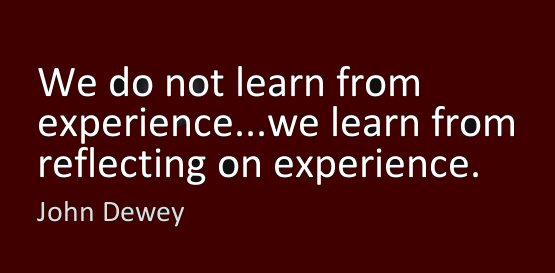I am a big proponent of self-reflection. I’m also a proponent of action. They make a good team. Today I’d like to offer you an exercise to show you how they can work together.
You’re starting your week. You’re about to start a fresh, new month. You’re cautiously optimistic. You’d like to get some important things done. You’d like to experience a bit of joy in your life. You’d like to be more present and less anxious about the future. Perhaps you’d like to take some important steps regarding your health.
Now, I don’t know your personal situation, but I’m going to guess that yesterday you made at least one mistake in how you managed your life. If not yesterday, then certainly this past week. At least one. How about during the past month?
Was there a meal in which you ate too much? Did you stay up too late one night watching a movie that wasn’t worth the two hours of your life that it cost? Did you spend too much time sitting and not enough time walking? Did you avoid some kind of paperwork that needed to be done because you “didn’t feel like it”? Did you overreact to some incident and lose your temper?
I have an easy time making this list. I have lots of personal experience.
So here’s the exercise. Start with yesterday and work your way backwards. I’m asking you to reflect on your recent life and come up with three mistakes – actual mistakes in what you did or didn’t do. Think about your work, your relationships, money, family, health or anything else.
- __________________________
- __________________________
- __________________________
Now look at your list. Was this the first time you made each of these mistakes? Probably not. Is there at least one item on this list that is too familiar? If yes, then you have a free membership in my club.
I’ve named it the:
“I Make the Same Mistakes Over and Over Again Club”
It’s an unusual club that nobody really wants to be a member of.
So now the reflection part of the exercise is over. Perhaps you feel a bit foolish or a bit humbled. That’s wonderful – humility is an underrated virtue.
Now for the action part. 
Do you have a place where you make a plan for the day? A to-do list? An app, a planner, a piece of scrap paper?
I’d like to suggest that you pick one item from your list of three mistakes and include it in your plan for the day. It might look something like this:
- I won’t stay up past 11pm tonight
- I won’t eat any pastries today
- I will work on my novel before I watch TV tonight
- I will call my mother and not get in an argument with her regardless of what she says
- I will not be late for any appointment because I will leave ten minutes early
- I will meditate tonight before I go to bed for at least 5 minutes.
Part of your plan for today is to not make the same mistake you made before. You just get to pick one – not more. Why? Because you want to focus and channel your energy. That gives you the best chance of succeeding.
So write this on your planner, or to-do list, or even on a sticky note and make sure it’s prominent – posted in a place where you will see it and be reminded throughout the day.
First you reflect, then you take action, or restraint, depending on the type of mistake. It’s a simple exercise. But practicing it, and succeeding, can be challenging. If you don’t make the selected mistake today, congratulations. Put it on your list again tomorrow. If you do make it, even though you committed yourself to not making it, well, good try. Put it on your list for tomorrow.
I suggest that every day you consciously set an intention to not make a particular mistake. Every day for the rest of your life – or until you run out of mistakes (whichever comes first).
What you’re really committing to is LEARNING. A life of learning. And not just any kind of learning. Learning from the direct experience of life itself.
Learning from life involves self-reflection and it involves practice. This isn’t just a simple exercise – it’s a way of life.
Now suppose you get really good at this. You reflect on your mistakes and you learn and you stop repeating them over and over. Wouldn’t that be wonderful?
But there’s a downside – you’ll lose your membership in the club. More importantly, you might be at risk for losing your hard-won humility and compassion as well. Making mistakes can protect us, to some degree, from being judgmental and harsh about others when they are less-than-perfect. So that’s the silver lining in being a mistake-maker. The more aware we are of our mistakes, the more accepting we can be of others. And that’s a big deal.
Gregg Krech is the author of five books about Japanese Psychology, including the Amazon Best Seller, The Art of Taking Action: Lessons from Japanese Psychology.
Tags: Attention Mental Wellness Taking Action













